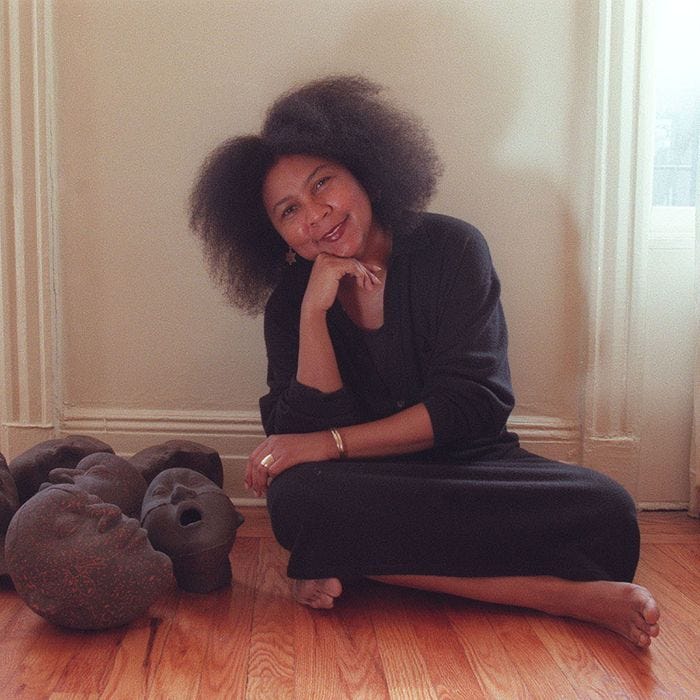Framer is a newsletter that uses frameworks and re-frames to break down big, systemic ideas.
In memory of bell hooks, who passed on last week, I’m sharing the notes I wrote for myself after reading All About Love.

Clarity about what love is
bell hooks argues that as a society, we misunderstand love. She adopts Erich Fromm’s definition of love as “the will to extend one’s self for the purpose of nurturing one’s own or another’s spiritual growth.”
The dimensions of love are: care, commitment, trust, responsibility, respect, and knowledge.
Cathexis is when someone is important to us, when we feel connected to someone else (feeling connected to someone is not love).
There is a huge misconception between romance and love; romance is wrapped up in fantasy. Just because we connect with someone, does not mean we love them. The intensity of these connections is blinding. “To love somebody is not just a strong feeling — it is a decision, it is a judgement, it is a promise.”
Honesty is vital to love; a power struggle doesn’t allow for honesty
We must accept ourselves for who we are in order to be honest and create a foundation for love.
The essence of true love is mutual recognition — two individuals seeing each other as they really are.
We have to commit to doing the work of love, to listen to the other even when it may hurt. Choosing to be fully honest, to truly reveal ourselves, is risky. But when we hear another person’s thoughts, beliefs, and feelings it is more difficult to project on to them our perceptions of who they are. It is harder to be manipulative.
“Where the will to power is paramount, love will be lacking.” Typically, men have been socialized to seek domination rather than show emotion, while women have been socialized to deny their feelings to please others. The only way to change this is to be honest and not punish others for telling the truth. There is no such thing as gender roles in love - we all yearn for connection.
When men struggle for domination, they fear trust. Men who weren’t shown love in childhood feel especially weary of entering this unknown in adulthood. If love doesn’t offer safety, there is inherent risk for loss and pain.
Our culture does not embrace love
Cultural emphasis on endless consumption deflects attention from spiritual hunger. We are bombarded with messages that tell us our needs can be satisfied by material gain. Real value and meaning come from being in communion with one another. Big business tends to destroy communities in which generosity and a neighborly view are acts of self-preservation (communities that don’t believe in a dog-eat-dog mentality or believe in using up all of their resources).
Although many of us come into contact with people everyday, plenty of people feel alienated and alone. Materialism creates a world of narcissism in which the focus of life is solely on acquisition and consumption. This is not a culture in which love can flourish. Intense emotional lack in our lives is the perfect breeding ground for material greed and overconsumption.
As a society, we have a collective fear of love (because it makes us vulnerable). Fear is the primary tool of domination. When love is present the desire to dominate and exercise power cannot rule the day.
Community is where love happens
Love starts (or should start) in childhood, but many grow up in dysfunctional families (even if abuse or lovelessness doesn’t seem apparent at first).
Community is defined as a group of individuals who have learned how to communicate honestly with each other, whose relationships go deeper than their masks of composure, and who have developed some significant commitment to rejoice together, mourn together, and to delight in each other, and make other’s conditions our own.
We choose our friends, and many of us look to friends for care, respect, knowledge, and nurturing (especially if not found in the family). In friendship, we are able to hear honest, critical feedback.
How to love
Forgiveness is an act of generosity.
Many of us feel lonely, but we can change this feeling into solitude, which is peaceful (rather than painful). Loneliness drives us to cling to others, being ok in solitude allows us to respect others in our community.
Giving generously in any bond means recognizing when the other person needs our attention. Attention is an important resource. Commitment is important because is allows us to be generous — we never have to fear abandonment.
When we commit to true love, we are committed to being changed, to being acted upon by the beloved in a way that enables us to be more fully self-actualized.
Love as related to death
We are a death worshipping culture — one that is rooted in fear — which doesn’t allow us to live fully.
We are more able to embrace the loss of intimate loved ones and friends when we know that we have given our all - when we have shared with them that mutual recognition and belonging in love which death can never change or take away.
When we love every day we do not need the eminent threat of sure death to be true to ourselves.
Wounds need not scar us for life and need not be a cause for shame. Being loving does not mean that we won’t be betrayed, but it does help us face betrayal without losing hope.
Ultimately, bell hooks saw love as a radical act that could subvert systems of domination embedded so deeply in our current society.
“Smashing the patriarchy” is not about buying mugs with RGB’s face on them — it’s about changing how we approach each other, recognizing that we all just want meaningful connection.



